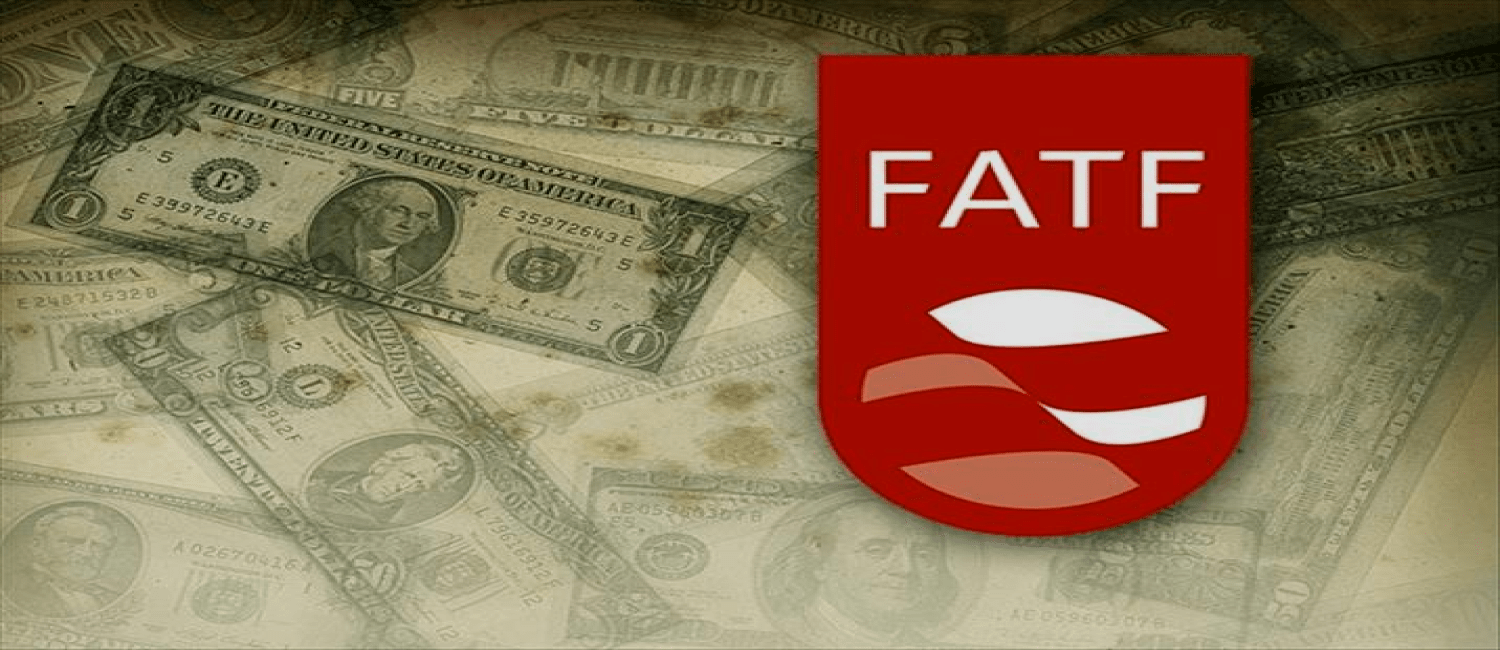One of the sectors that financial criminals see as a target for money laundering and terrorist financing is the gaming and gambling industry. Money laundering techniques are used to convert funds from criminal activities into legal money in the gaming and gambling industry. Gaming and gambling businesses have specific responsibilities to prevent these crimes.
All gaming and gambling industries are subject to the Proceeds of Crime Act (POCA). The gaming and gambling industry is also subject to and has to comply with national or local regulations such as Moneyval, FATF, and European Union Directives in order to anti-money laundering and terrorist financing. In addition to the regulations, each gambling business has to have a comprehensive AML Compliance Program suitable for its business.
AML Regulations in the United States for Gaming and Gambling Companies
The United States (US) has some regulations for legal gambling states. One of the main regulators has the authority to review the Financial Crimes Protection Network (FinCEN) gambling businesses for compliance with the Bank Privacy Act (BSA) and violations of the law. But FinCEN has delegated its compliance review authority to the Internal Revenue Service (IRS). If the IRS detects a significant BSA violation in both its casino and its review, FinCEN initiates an investigation into that casino, and an administrative penalty is imposed on the casino based on the outcome of the investigation. At this point, FinCEN and IRS cooperate to detect BSA violations in casinos in the USA and to take criminal action. The US BSA has some regulatory requirements for the gaming and gambling industry, including:
- Creation of Suspicious Activity Reports (SARs) when at least $ 5,000 suspicious transactions are carried out
- Creating Currency Transaction Reports (CTRs) in cash inflows and outflows in excess of $ 10,000
- Application of the most suitable AML compliance programs within the casino
- Keeping track of customers' debts or loans, such as credit extensions over $ 10,000, and keeping those records for up to five years.
Besides BSA, FinCEN also has some regulations and recommendations for the industry. FinCEN, published in 2010 for the gaming gambling industry, contains the following information:
- An internal control system should be created to ensure continuous compliance with BSA.
- Training of casino staff to identify unusual or suspicious transactions
- Making and keeping a record is required under BSA
- Eligibility tests for money laundering and terrorist financing risks resulting from the products and services provided
- Determining the name, address, social security or taxpayer identification number, and other identifying information of a person
AML Regulations in the United Kingdom for Gaming and Gambling Companies
The United Kingdom (UK) has one of the largest and most regulated gambling industries in the world, with a diverse range of gaming and gambling activities. The UK Gambling Commission (UKGC) is the regulatory body that oversees all aspects of the industry, including the prevention of money laundering and terrorist financing.
One of the key AML regulations in the UK is the Money Laundering, Terrorist Financing, and Transfer of Funds (Information on the Payer) Regulations 2017 (MLR 2017), which apply to all sectors, including the gaming and gambling industry. MLR 2017 requires all gaming and gambling companies to conduct a risk assessment of their business to identify and mitigate the risks of money laundering and terrorist financing. In addition, the UKGC has issued specific guidance for the gaming and gambling industry on AML requirements. The guidance highlights the importance of customer due diligence, which includes verifying the identity of customers, monitoring customer transactions, and conducting ongoing risk assessments.
Gaming and gambling companies are also required to appoint a nominated officer (NO) who is responsible for ensuring compliance with AML regulations. The NO must be an individual with appropriate skills, knowledge, and experience to carry out their role effectively. The UKGC carries out regular inspections of gaming and gambling companies to ensure compliance with AML regulations. Companies found to be in breach of these regulations may face sanctions, including fines, license revocation, and criminal prosecution.
The European Union (EU) AML Regulation for Gambling Industry
In 2018, the EU introduced the Fifth Anti-Money Laundering Directive (5AMLD), which expanded the scope of AML regulations to cover virtual currencies, prepaid cards, and high-value goods. The directive also included provisions for the gaming and gambling industry, making it mandatory for operators to implement effective AML measures.
Under the 5AMLD, gaming and gambling companies are required to conduct Customer Due Diligence (CDD), and Enhanced Due Diligence (EDD) measures for high-risk customers, including politically exposed persons (PEPs). Operators must also monitor and report any suspicious transactions to the relevant authorities, such as the Financial Intelligence Units (FIUs).
The EU also requires gaming and gambling operators to appoint a designated AML officer to oversee compliance with AML regulations. These officers are responsible for implementing and maintaining AML programs, as well as conducting ongoing employee training and risk assessments.
In addition to the 5AMLD, the EU has also implemented other regulations, such as the Fourth Anti-Money Laundering Directive (4AMLD) and the General Data Protection Regulation (GDPR), which require operators to safeguard customer data and prevent it from being misused for money laundering activities.
AML Regulations in Australia for Gaming and Gambling Companies
There are some regulations for controlling the Australian gaming and gambling industry and reducing risks. In Australia, AUSTRAC regulates some commercial activities in the gambling sector with the ML/CFT Law published in 2006. If a gambling business has a geographic connection with Australia, AUSTRAC is considered a legal entity that has to report. Under the law, casinos have obligations such as notifying AUSTRAC of some business activities and transactions, keeping records, and conducting the AML/CTF program. In Australia, gambling agencies or bookmakers, Casinos, Bars, clubs, and providers of electronic gaming machines under the gaming and gambling industry are subject to these regulations. Australia is also the gambling jurisdiction with one of the strictest compatibility requirements in the world.
Another Australian gambling regulator is the National Consumer Protection Framework (NCPF). The purpose of the NCPF is to introduce a variety of regulations that focus on minimizing the harms of risks, such as money laundering in the gambling industry responsible for the execution of online bets in Australia. NCPF measures have some minimum standards, and states follow these recommendations. Some of these measures are:
- Reduction of customer verification time
- Prohibition of credit limits for betting purposes
- Creating some prohibitions on specified incentives
- Clarification of account closing mechanisms
- Giving activity statements to customers
- Deterring the use of payday loans for online betting
- Implementation of a voluntary pre-commitment program
- Training of staff on responsible behavior of gambling
AML Regulations in Asia for Gaming and Gambling Companies
The gaming and gambling industry is a major industry in Asia, and with its growth, it has become an attractive target for money laundering and terrorist financing.
In China, for example, AML regulations for the gaming industry are overseen by the Ministry of Public Security, which requires casinos to comply with strict reporting requirements and conduct background checks on their customers. Japan has also introduced a comprehensive AML framework that includes strict customer identification and verification requirements, while South Korea has implemented a risk-based approach to AML that places a greater emphasis on high-risk customers and transactions.
Singapore, on the other hand, has established a regulatory framework that takes a comprehensive approach to AML for both the casino and non-casino sectors. This framework includes enhanced due diligence requirements for politically exposed persons, transaction monitoring, and suspicious transaction reporting.
While AML regulations in Asia have made progress in mitigating the risks associated with money laundering and terrorist financing in the gaming and gambling industry, there are still challenges that need to be addressed. These include the need for greater cross-border cooperation, standardization of regulations across different markets, and increased awareness and training for industry professionals to help them recognize and report suspicious activities.
AML Penalties for the Gaming and Gambling Industry
All gambling businesses in the world are subject to local or national AML regulations. The main purpose of these regulations is to minimize or eliminate money laundering and terrorist financing risks in this sector. These risks can be reduced by procedures such as Know Your Customer (KYC) and CDD recommended by regulators. Enterprises in the Gaming and Gambling industry must comply with these gambling regulations and obligations. If they do not, criminal proceedings are initiated against these institutions.
Unfortunately, this is a fact that some gaming and gambling businesses do not comply with these regulations, so criminal proceedings are initiated against them. A notable striking example is that The UK Gambling Commission stated that the two online gaming companies would pay a total of £ 2.8 million, as they are delayed in following their respective AML compliance programs. Osaka-based Platinum Gaming Ltd and London-based Gamesys Ltd did not implement adequate AML control and received this penalty because they did not protect their customers from possible gambling risks. In addition to this example, FinCEN has also criminalized some gambling industries that do not comply with the regulation. Between 2003 and 2014, FinCEN imposed three criminal penalties of $ 1.6 million against casinos. In contrast, between 2015 and 2016, he applied approximately $ 110 million in a criminal action to casinos and has made four major sanctions since 2016.
Sanction Scanner AML Compliance For Gaming and Gambling Industries
Financial crime risks increased with the globalization of the gaming and gambling industries. According to FATF and European Union directives and regulations, gaming and gambling organizations are required to comply with the AML/CTF regulations. If they do not comply with these regulations, they receive certain penalties. The AML, CFT, and KYC compliance processes of gaming and gambling businesses do not have to be difficult. Sanction Scanner helps AML and KYC compliance processes by offering tailored solutions for the gaming and gambling industry. With our sanction and PEP scanning service, transaction monitoring and risk assessment solutions organizations can easily and quickly manage AML compliance. Sanction Scanner's AML compatibility solutions allow you to comply with global and local AML regulations.





